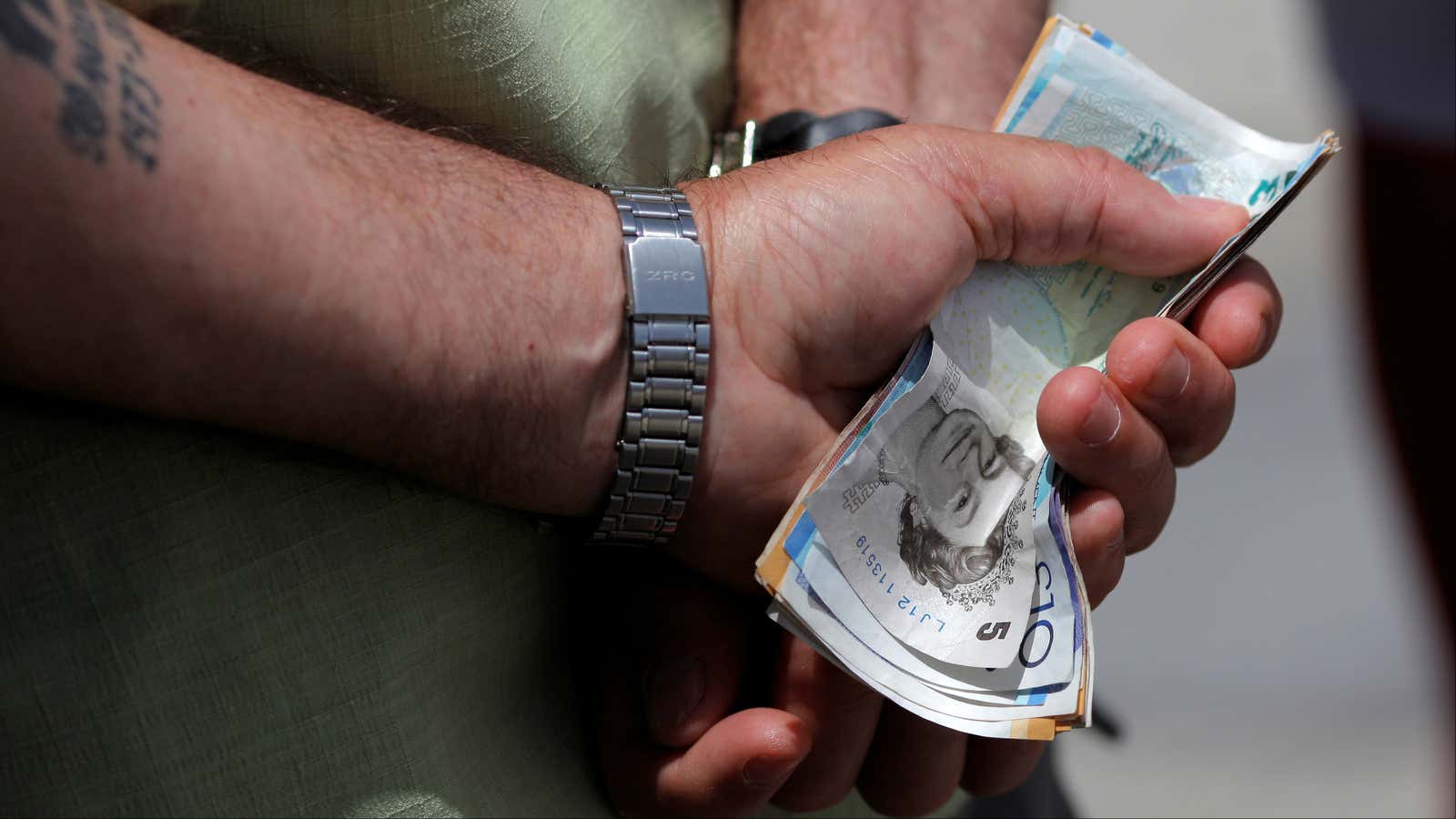Hopefully the British worked up an appetite as they voted to leave the European Union. They will need it in coming months as the country hashes out plans for how feed its people.
In the immediate aftermath, the collapse in the value of the British pound against the dollar and euro is going to make UK imports of food more expensive. And it imports a lot of food. In 2015, the UK exported £18 billion (at the time about $26 billion) worth of a food and drink, a number that’s dwarfed by the £38.5 billion it spent to import food and drink that same year.
Looking further out, it’s hard to pin down exactly what will happen to the UK’s food and agricultural sectors, in part because having a major world economy disentangle itself from a powerful geo-political trading bloc is unprecedented.
“The medium term outlook would depend very much on the terms of the exit negotiations, making it very difficult to quantify the economic impact, or indeed determine the regulations which UK business would still need to adhere to.” said Sarah Boumphrey, an analyst with Euromonitor.
Imports and exports
What happens to the cost and availability of different food products in the long-term has more to do with the UK’s trade deals with the remaining 27 European Union member states as it begins to extricate itself from continental laws and regulations. For starters, a uniform EU agricultural policy made it easier for the UK and European states to buy and sell goods—just one reason why Britain’s farming lobby and its secretary of state for environment, food and rural affairs pushed hard for a vote to remain.
Now, it will have to re-negotiate its trade and policy relationships with each EU member state. That’s going to be a critical process for the country, which sends 70% of its food and agricultural products to EU nations. It’s also going to be a nettlesome endeavor, as trade negotiations can often take months or even years to ratify. The UK will also have to figure out how to rework its farm insurance, subsidy payments and environmental stewardship programs.
“That puts a lot of uncertainty in agriculture,” said David Hughes, a food business professor at Imperial College London. Hughes added that the EU provided farmers with a subsidy cushion that may not be replicated by an independent UK.
And until those trade deals and tariff agreements are signed and sealed, people will be less likely to make investments in UK food technology and innovation, said Euromonitor analyst Raphael Moreau.
Impact on consumers
In the coming weeks, consumers will likely not notice much of a difference. Many large food manufacturers and processors order products for their regions on a quarterly basis, which means it will be several months before there are any changes in prices. Even when they do start fluctuating, it’s possible consumers will hardly notice as competition among retailers in the UK is stiff, and there is an incentive to keep prices low, Hughes said.
“I would expect to see [prices] come up a little, but 1 or 2%,” he said. “Is that going to rock the consumer? No.”
Among individual products, Euromonitor analysts said they expect confectionery, ready meals and snack foods to be the most affected among packaged foods. However, analysts said the weaker pound and increased price of imports will mostly likely be noticed in the cost of fresh fruits and vegetables.
Another product analysts are watching is coffee. The British taste for coffee has grown during the last decade, to the point that coffee pods were added to the official basket of goods used to calculate the country’s inflation rate. Higher import costs, though, could lead to higher prices. Already analysts are forecasting retail volume of coffee sold will drop by around 172 tons.
